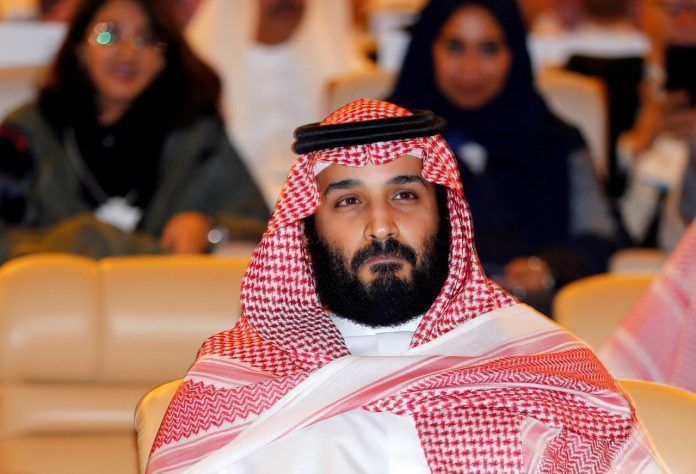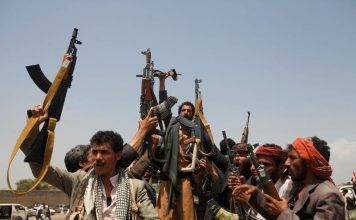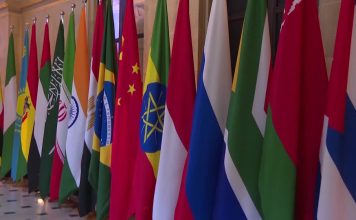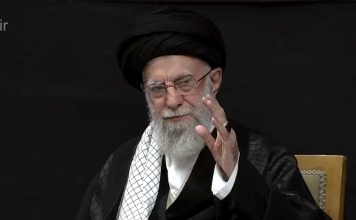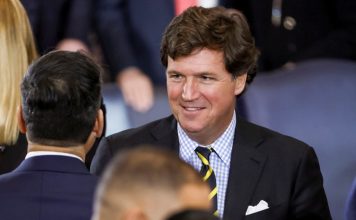By Aziz El Yaakoubi
RIYADH, April 3 (Reuters) – Saudi Arabia’s unpredictable crown prince is pushing hard to realign Middle East dynamics, engaging with old foes and orchestrating OPEC oil cuts like the ones on Sunday which took the global market by surprise.
Crown Prince Mohammed Bin Salman, known as MbS, has signalled he is prepared to go it alone without the help of the United States to pursue Saudi interests, whether it means re-establishing ties with U.S. adversaries like Iran, or removing supplies from the oil market and angering consumers.
The strategy is designed to create conditions enabling Saudi Arabia to focus on MbS’s vast economic transformation plan, Vision 2030, in which he has poured hundreds of billions of dollars, hoping it will open the conservative kingdom to business and tourism amid rising regional competition.
The strategic shift began in 2019 after the devastating attacks on Saudi Aramco’s oil facilities – after which Riyadh questioned U.S. security commitments to the region – and gained momentum after Israeli attacks on Iranian targets, analysts say.
The kingdom hopes to avoid getting caught up in the crossfire, they say.
“Saudi Arabia is moving from disengagement towards engagement to allow it to focus on pushing ahead on Vision 2030,” said Saudi analyst Abdulaziz Sager.
The kingdom has gone into diplomatic overdrive, restoring relations with Iran and agreeing to a rapprochement with Syria in its quest to rebuild regional alliances, instead of leaning entirely on the United States, its long-time big power ally.
Saudi Arabia is planning to invite Syrian President Bashar al-Assad to an Arab League summit that Riyadh is hosting in May, three sources familiar with the plans have said, a move that would formally end Syria’s regional isolation.
ANALYSIS: Iran-Saudi Talks Benefit Both Sides, As Well As China
‘UNWISE MOVE’
The kingdom also announced a decision to join the China-led Shanghai Cooperation Organization, a sign that it is cultivating a long-term relationship with Beijing at the expense of the United States.
A Saudi official said the United States and China are both very important partners for Riyadh.
“We certainly hope not to be part of any competition or dispute between the two superpowers. We are not a superpower, but what we are is an important player in the region and global economy,” the official, who declined to be named, said.
White House national security spokesperson John Kirby said on Monday Riyadh remains a strategic partner for Washington even if the two did not agree on all issues. Washington and Riyadh are working on addressing common security challenges, he said.
Riyadh’s increasing assertiveness extends to oil policies.
On Sunday, the Saudi-led Organization of the Petroleum Exporting Countries and their allies including Russia (OPEC+) announced further production cuts of about 1.16 million barrels per day (bpd), drawing U.S. disapproval.
The Gulf Research Center, a Saudi-based think-tank, said the OPEC cuts show major oil producers can free themselves from U.S.-Western pressure and pursue an independent policy that puts their national interests first.
“We’re in a Saudi First oil market now. Producers don’t just earn more, they enjoy far more geopolitical leverage when markets are tight,” said Jim Krane, a research fellow at Rice University’s Baker Institute.
MENDING FENCES WITH IRAN
In a significant deal brokered by China, Riyadh reached an agreement with Tehran to revive diplomatic relations, after years of bitter rivalry that have fuelled conflict across the Middle East.
Elisabeth Kendall, a Middle East expert at Cambridge’s Girton College, said the abrupt U-turn might have been spurred by the escalating confrontation between Israel and Iran.
“Saudi likely hopes that by thawing relations with Iran, it will avoid getting caught up in another regional conflict, thereby removing the risk of another direct Iranian attack on its infrastructure, such as the crippling 2019 attacks on Aramco,” Kendall said. Iran denied responsibility.
ANALYSIS-Frustrated Khamenei Pushed for Saudi-Iran Deal Clinched in China
On Sunday, Israeli forces carried out air strikes on Iranian outposts in Syria, the Syrian defence ministry said. Western intelligence sources said a series of air bases in central Syria where Iranian personnel are based were hit.
The attack, the latest in a series on Iranian military facilities in Tehran’s close ally Syria, raised the spectre of a broader regional confrontation that would put U.S. Gulf allies in the line of fire should military operations escalate.
Previous air strikes on Saudi oil sites, and on a United Arab Emirates fuel depot by Iranian-backed Yemeni Houthi forces, have laid bare the uncertainty surrounding the U.S. security stake in its Arab allies, prompting Riyadh to push for de-escalation with Tehran and diversify its security partners.
There has never been any serious dialogue, either within the U.S. government or with the Saudis, on the conditions under which Washington would come to the defence of Saudi Arabia should it be attacked, said Bilal Saab, Director of the Defence and Security Program at the Middle East Institute in Washington.
“The Saudis don’t want to be in a shooting war between Iran and the United States. They don’t trust that Washington will protect them,” Saab said.
Riyadh’s growing ties with Beijing have raised security jitters in Washington, which says Chinese attempts to exert influence around the world will not change U.S. policy toward the Middle East.
Shadi Hamid of the Brookings Institution in Washington said Saudi Arabia’s view that the U.S. is increasingly disengaged from the region is not entirely wrong.
“The crown prince has decided to hedge his bets, both as a concession to reality but also as a way of provoking the U.S. to pay more attention to its security concerns,” Hamid said.
“The U.S. has been annoyed but has not retaliated in any way, which in turn has emboldened Saudi Arabia to continue deepening its relationship with America’s chief adversaries.”
(Reporting by Aziz El Yaakoubi, additional reporting by Ghaida Ghantous and Maha El Dahan; editing by Michael Georgy and Mark Heinrich)

